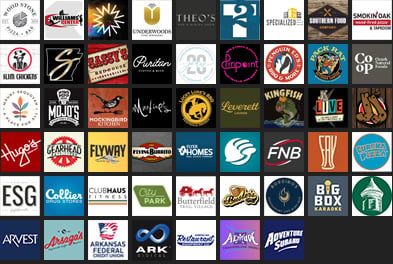 (Flyer photo)
(Flyer photo)FAYETTEVILLE — The city will soon have a better idea of how many people are operating illegal short-term rental businesses around town.
The City Council on Tuesday approved a proposal to hire a company to investigate and report back to the city information about short-term rental operators who do not have business licenses or the proper permits.
The council in 2021 adopted regulations for short-term rentals. The law categorizes short-term rentals as either Type 1 or Type 2. Type 1 rentals are homes that the owners live in, but sometimes rent out rooms or the entire house to guests when they’re out of town. Type 2 rentals are rented all year, and have no owners living in them.
Both types of rentals require a business license, but owners of a Type 2 business must also apply for a conditional use permit from the Planning Commission.
The law also states that no more than 2% of all residential units in Fayetteville can be Type 2 rentals.
As of May 16, city staff said there are 379 Type 2 short-term rentals licensed in Fayetteville out of the 894 that are allowed for under the law. However, there are likely at least 300 more short-term rentals being operated in Fayetteville without the required licenses or permits.
Councilmember Teresa Turk, who sponsored the investigation proposal, said she recently checked the Airbnb website and found seven unlicensed rentals in one city block where the Planning Commission recently approved a permit for a short-term rental. Knowing about those other rentals, she said, could’ve had an impact on the commission’s decision.
Turk’s proposal did not include any procedures for enforcement once a property is found to be non-compliant, which is something the council’s Ordinance Review Committee is currently considering.
“This is not at all to preempt the Ordinance Review Committee which is looking at different kinds of policies and requirements and enforcement,” Turk said. “This is only to get some data gathering.”
Councilmember Holly Hertzberg, who is chair of the Ordinance Review Committee, said she welcomes more compliance information.
“This would be really helpful,” Hertzberg said. “It has been a point of contention in trying to figure out who is licensed and how to regulate them. This would give us a good starting point.”
Jonathan Curth, the city’s development services director, said in researching independent contractors who could be hired, there are various services offered ranging from simple data gathering to operating a 24-hour hotline, to actual enforcement. The cost for the most basic services, like simply reporting non-compliant addresses to the city, would likely be about $20,000.
Councilmember Sarah Bunch said she’s interested to see whether there are any short-term rental management companies operating rental properties without licenses.
“It’s one thing if it’s an individual who doesn’t know any better,” said Bunch. “But I’d kind of like to know if there are any businesses in our community making money (from non-compliant properties).”
Curth said in his research, he talked to officials in other cities who have contracted with private companies for short-term rental investigations. He said oftentimes, the data that’s provided has to be double-checked by city staffers before any enforcement could begin.
“That was a concern we heard over and over again,” said Curth. “In some cases there has been an unexpected burden on staff. So there needs to be some consideration of that impact, whether it’s Planning Commission workloads, staff workloads and so on.”
Turk said she hopes the council would be open that conversation.
Mayor Lioneld Jordan agreed.
“I hope so too,” said Jordan. “Because as you can see, we would probably have to get involved and that will probably take another staffer.”

